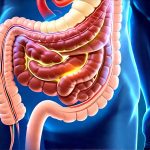Irritable Bowel Syndrome (IBS) is a common gastrointestinal disorder affecting millions worldwide. It’s characterized by a cluster of symptoms – abdominal pain, bloating, gas, diarrhea, and constipation – that can significantly impact quality of life. While the exact cause remains elusive, it’s believed to stem from a combination of factors including gut motility issues, visceral hypersensitivity (increased perception of pain in the gut), brain-gut interactions, and altered gut microbiota. Because IBS disrupts normal digestive processes, questions naturally arise about how well the body absorbs essential nutrients, particularly vitamins. Many individuals with IBS report concerns regarding vitamin deficiencies or difficulties tolerating supplements, leading to a desire to understand which vitamins might pose particular challenges for absorption in this context.
The complexity of vitamin absorption is often underestimated. It isn’t simply about swallowing a pill or eating a food containing the vitamin; it’s a multifaceted process involving digestion, breakdown of food, enzymatic action, and the health of the intestinal lining. IBS can interfere with several stages of this process. Diarrhea, frequently experienced by those with IBS-D (diarrhea predominant), can reduce contact time between nutrients and the intestinal wall, potentially diminishing absorption. Conversely, constipation in IBS-C (constipation predominant) may alter gut transit time and microbial activity, also affecting vitamin uptake. Furthermore, inflammation, often present to varying degrees in IBS, can damage the intestinal lining and impair nutrient transport mechanisms. Understanding these interactions is crucial for navigating vitamin supplementation or dietary adjustments when living with IBS. Considering how to balance nutrition while managing restrictions is vital.
Vitamin Absorption Challenges in IBS
Certain vitamins are inherently more susceptible to absorption issues within the context of an impaired digestive system like that found in many people with IBS. Fat-soluble vitamins – A, D, E, and K – rely on efficient fat digestion for their uptake. If IBS causes malabsorption of fats (often due to rapid transit time or bile acid dysregulation), these vitamins won’t be absorbed optimally. Water-soluble vitamins, like B vitamins and vitamin C, are generally better absorbed but can still be affected by the overall health of the gut lining and the presence of inflammation. Specifically, Vitamin B12 absorption is a complex process that requires intrinsic factor produced in the stomach, and any disruption to stomach acid production or intestinal absorption sites can lead to deficiency. Individuals with long-standing IBS may also develop small intestinal bacterial overgrowth (SIBO), which can compete for nutrients, including vitamins, reducing their availability to the host. It’s important to be aware of high-fodmap foods that might exacerbate symptoms and impact absorption.
The impact of specific IBS subtypes on vitamin absorption shouldn’t be overlooked. For instance, those with IBS-D might struggle more with absorbing fat-soluble vitamins due to faster gut transit and potential bile acid malabsorption. Those with IBS-C may experience altered gut microbiota leading to reduced Vitamin K production by intestinal bacteria. Furthermore, dietary restrictions often adopted by individuals with IBS – eliminating FODMAPs, gluten, or dairy – can inadvertently limit vitamin intake if not carefully planned. It’s important to remember that these are generalizations and individual experiences will vary considerably based on the severity of their IBS, specific symptoms, diet, and other health factors. Paying attention to packaged health foods is also important as hidden ingredients can cause issues.
Addressing potential deficiencies requires a thoughtful approach, prioritizing dietary sources where possible and considering supplementation only when necessary and under the guidance of a healthcare professional. Self-treating can sometimes exacerbate symptoms or create imbalances, so seeking personalized advice is crucial. It’s also worth noting that absorption isn’t always the sole issue; even if a vitamin is absorbed, its utilization within the body can be affected by inflammation or other physiological changes associated with IBS.
Vitamin D and IBS
Vitamin D plays a vital role in immune function, bone health, and mental wellbeing—all areas potentially impacted by IBS. Many people are already deficient in Vitamin D, and IBS can further complicate matters. The absorption of vitamin D is intrinsically linked to fat absorption; as mentioned earlier, impaired fat digestion due to IBS symptoms can lead to reduced uptake. Additionally, chronic inflammation, a common feature of IBS (even if subclinical), can interfere with the activation of vitamin D into its usable form, calcitriol. It’s also important to consider drinks to avoid that might further impact gut health and Vitamin D absorption.
- Studies have explored a potential link between low Vitamin D levels and increased severity of IBS symptoms. While correlation doesn’t equal causation, some research suggests that adequate Vitamin D status might help modulate immune responses and reduce gut inflammation.
- Supplementation with Vitamin D should be approached cautiously. High doses can sometimes cause digestive upset, exacerbating IBS symptoms in sensitive individuals. It is best to start with a lower dose and gradually increase if tolerated, always under medical supervision.
- Dietary sources of Vitamin D include fatty fish (salmon, tuna), egg yolks, and fortified foods. However, obtaining sufficient vitamin D solely from diet can be challenging, especially for those with restrictive diets or limited sun exposure.
Folate & B Vitamins in IBS
B vitamins are crucial for energy metabolism and nerve function, and folate (Vitamin B9) is vital for cell growth and development. Individuals with IBS may have reduced absorption of these vitamins due to several factors. Rapid gut transit in IBS-D can limit the time available for B vitamin absorption in the small intestine. Furthermore, some medications commonly used to manage IBS symptoms – such as certain antidiarrheals – can interfere with nutrient absorption. If you find bananas problematic, it’s good to know why some people react.
- Folate deficiency is particularly concerning because it’s essential for DNA synthesis and repair. Symptoms of folate deficiency include fatigue, weakness, and mouth sores, which can overlap with IBS symptoms, making diagnosis challenging.
- B12 absorption depends on intrinsic factor, a protein produced in the stomach. Some individuals with IBS may have reduced stomach acid production, hindering intrinsic factor release and impacting B12 uptake. SIBO can also interfere with B12 absorption by consuming it within the small intestine before it can be absorbed.
- Food sources of B vitamins are abundant – leafy green vegetables for folate, meat and poultry for B12, whole grains for thiamine (B1) – but dietary intake may not always be sufficient. Supplementation, particularly with a bioavailable form of folate (methylfolate), might be considered under medical guidance, but it’s essential to choose formulations that are gentle on the digestive system.
Vitamin C & Gut Health
Vitamin C is an antioxidant crucial for immune function and collagen synthesis. While generally well-absorbed, IBS can still affect its uptake and utilization. High doses of vitamin C (ascorbic acid) can have a laxative effect in some individuals, potentially exacerbating diarrhea symptoms in those with IBS-D. Conversely, the inflammation associated with IBS might increase oxidative stress, raising the body’s demand for Vitamin C.
- The gut microbiome plays a role in vitamin C metabolism. An imbalanced gut microbiota (dysbiosis), common in IBS, can affect both vitamin C absorption and its conversion into active forms within the body.
- Buffered forms of vitamin C – such as sodium ascorbate or calcium ascorbate – are often better tolerated by individuals with sensitive digestive systems because they are less acidic. This reduces the likelihood of gastrointestinal upset.
- Dietary sources of Vitamin C include citrus fruits, berries, and peppers. Focusing on food sources is preferable to supplementation whenever possible, but if supplementing, start with a low dose and monitor tolerance carefully. When travelling, know how to dine out safely.
Ultimately, navigating vitamin absorption with IBS requires a personalized approach. There’s no one-size-fits-all solution. Working closely with a healthcare professional – ideally a gastroenterologist and registered dietitian specializing in gut health – is essential to identify potential deficiencies, tailor supplementation strategies, and optimize dietary intake to support overall wellbeing. Regular monitoring of vitamin levels and careful attention to individual symptom responses are key to managing this complex interplay between IBS and nutrient absorption. Understanding whether seed oils might be contributing to gut issues is also helpful.


















